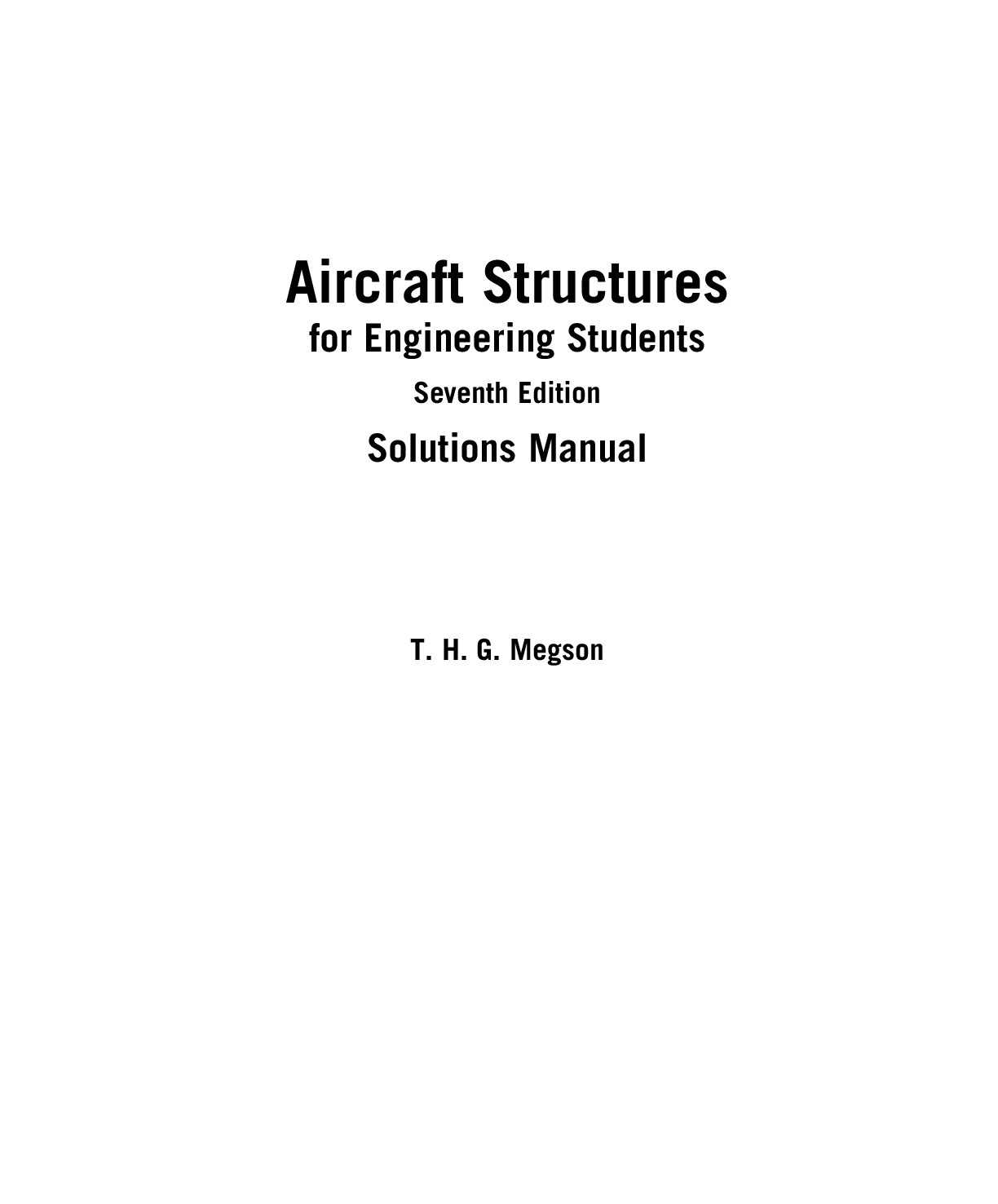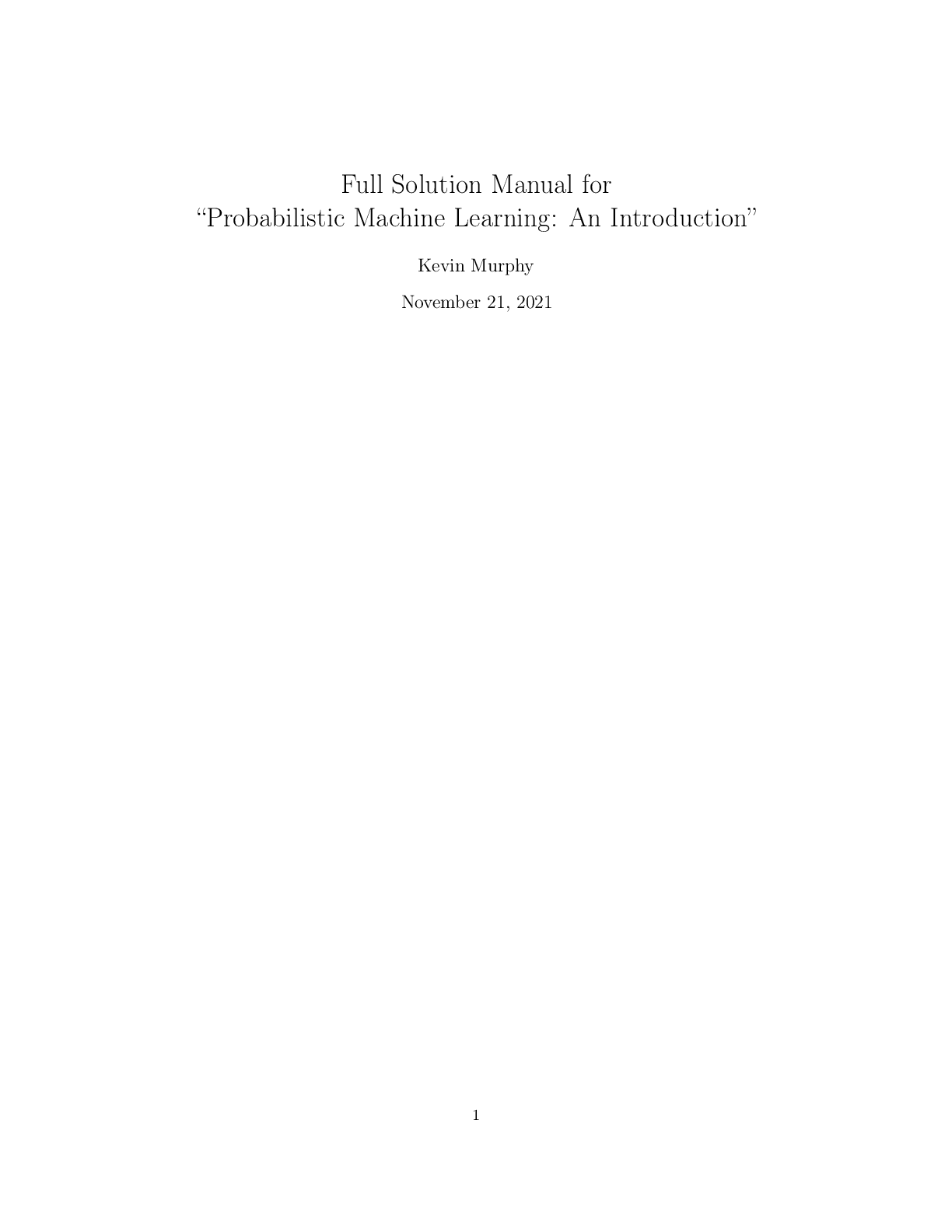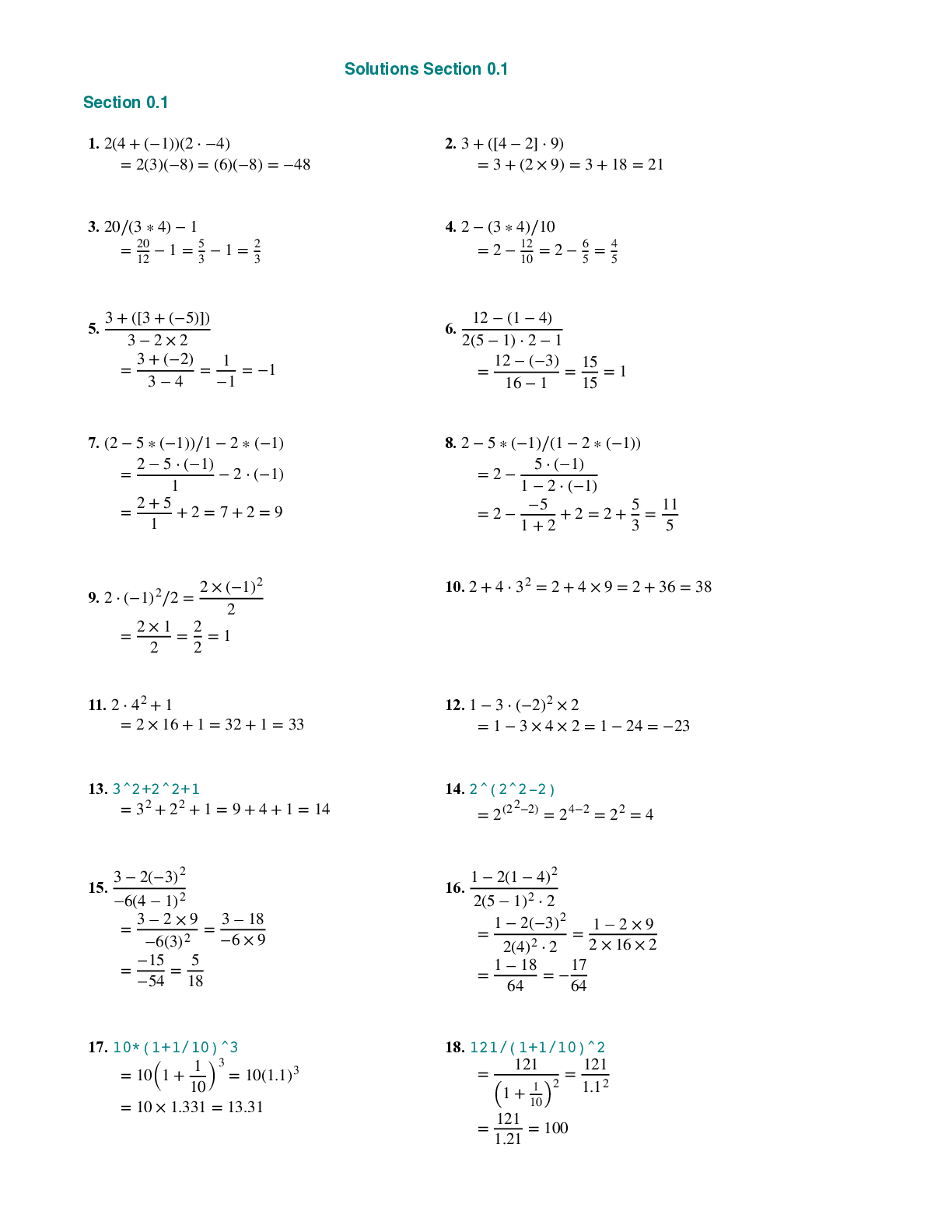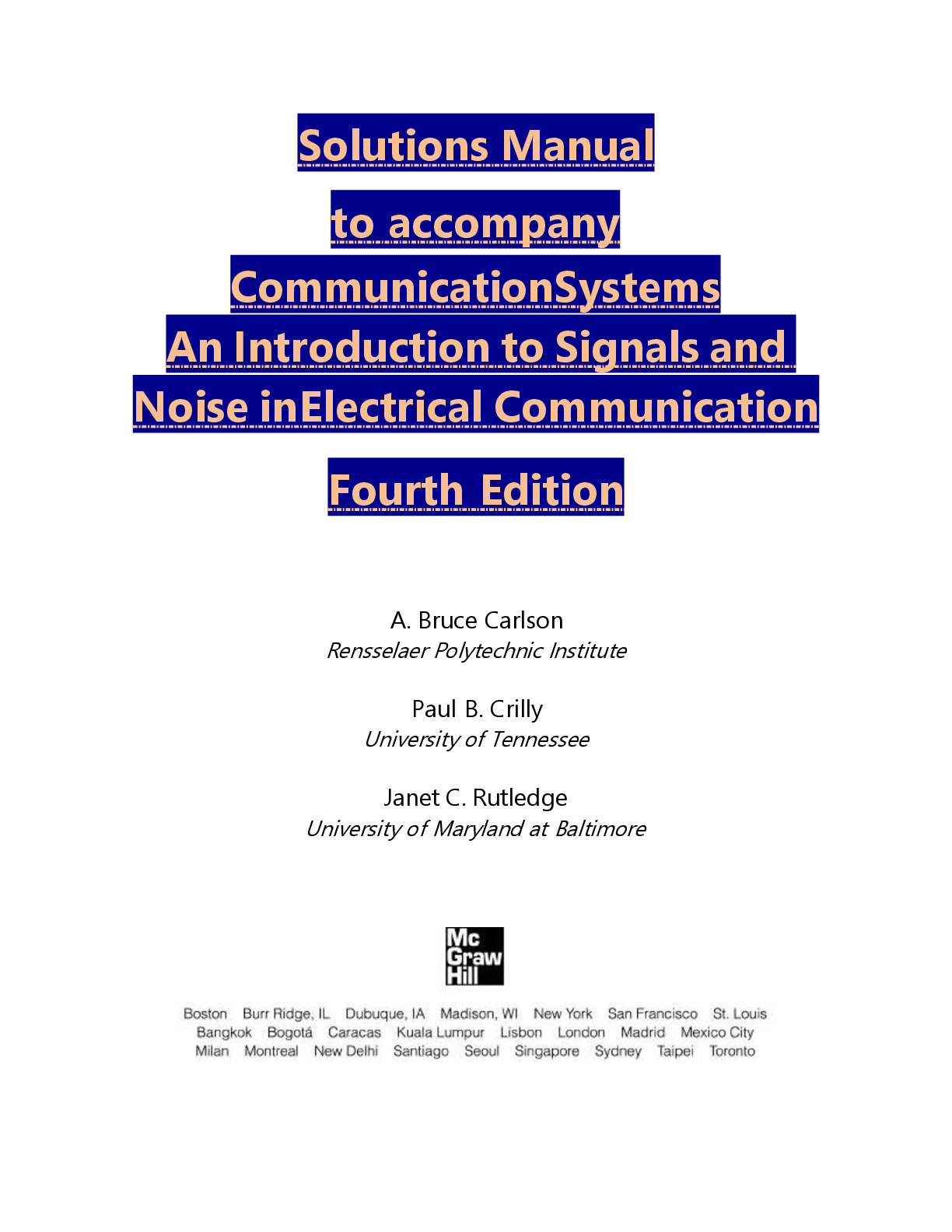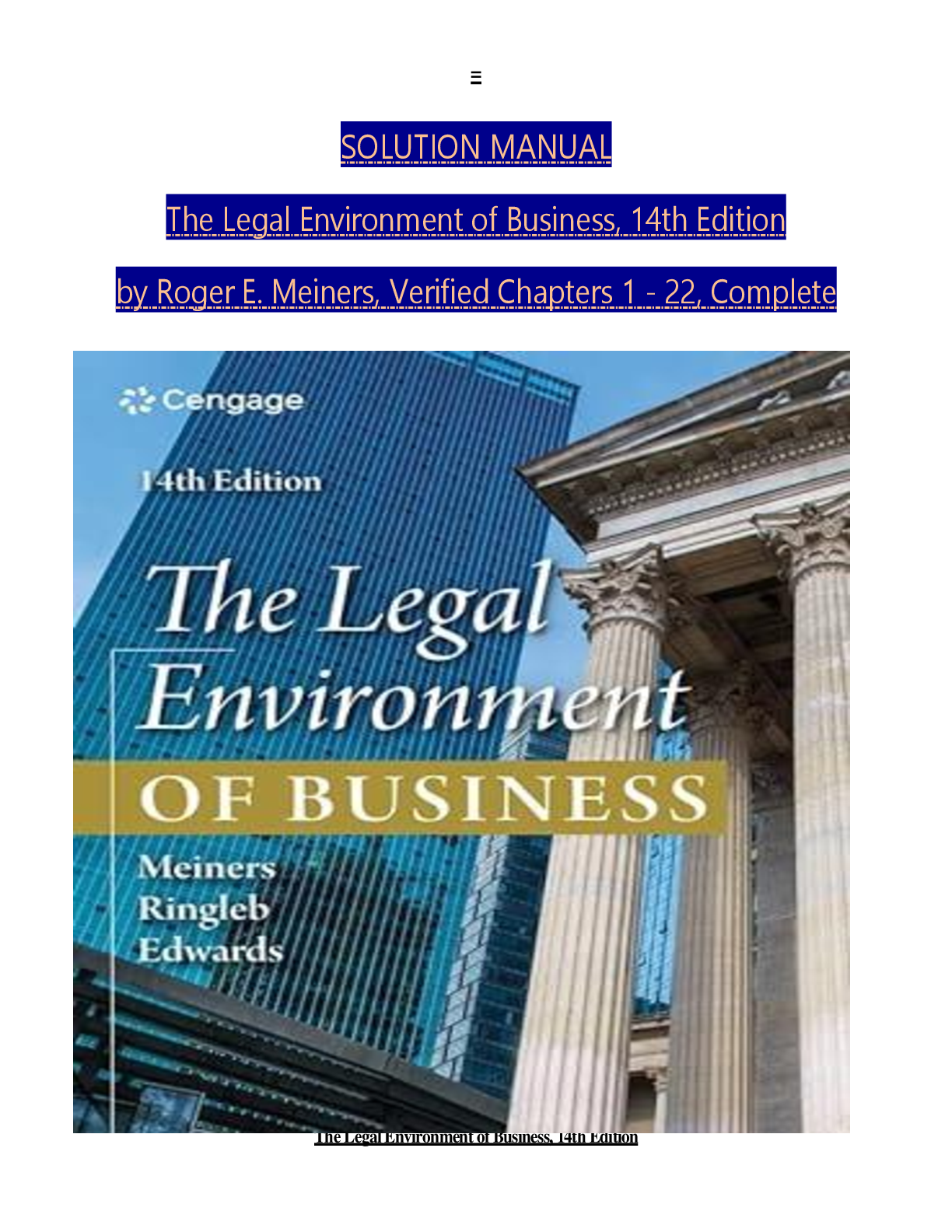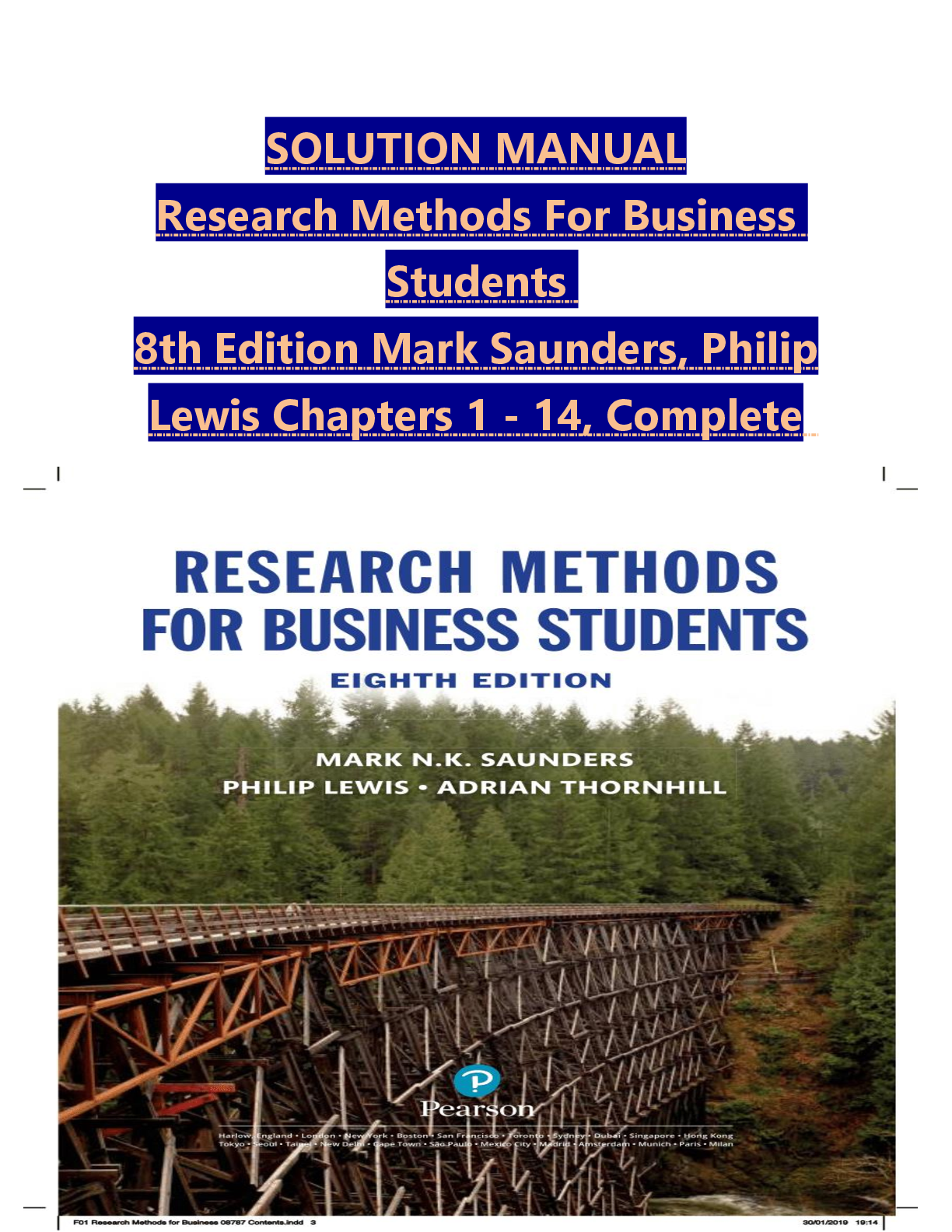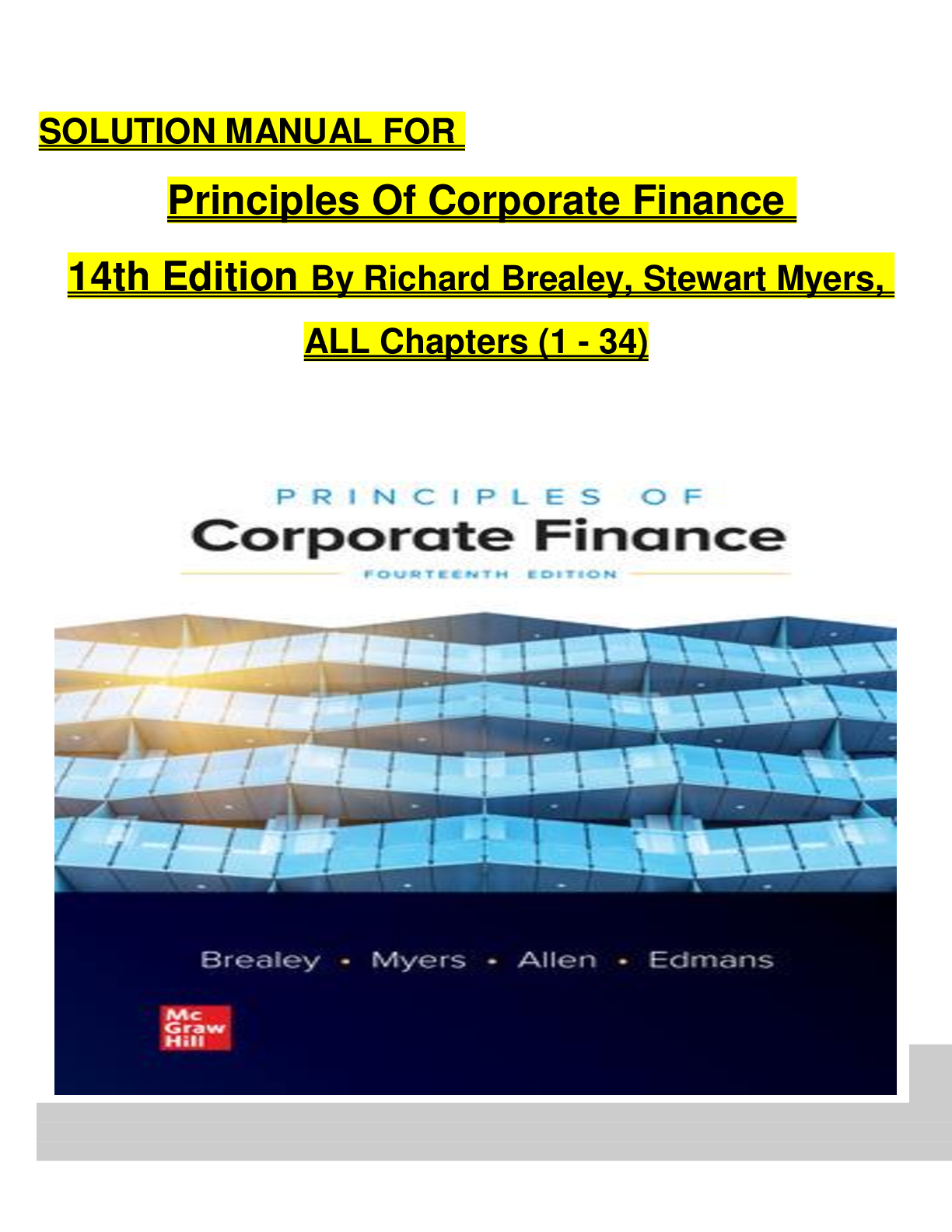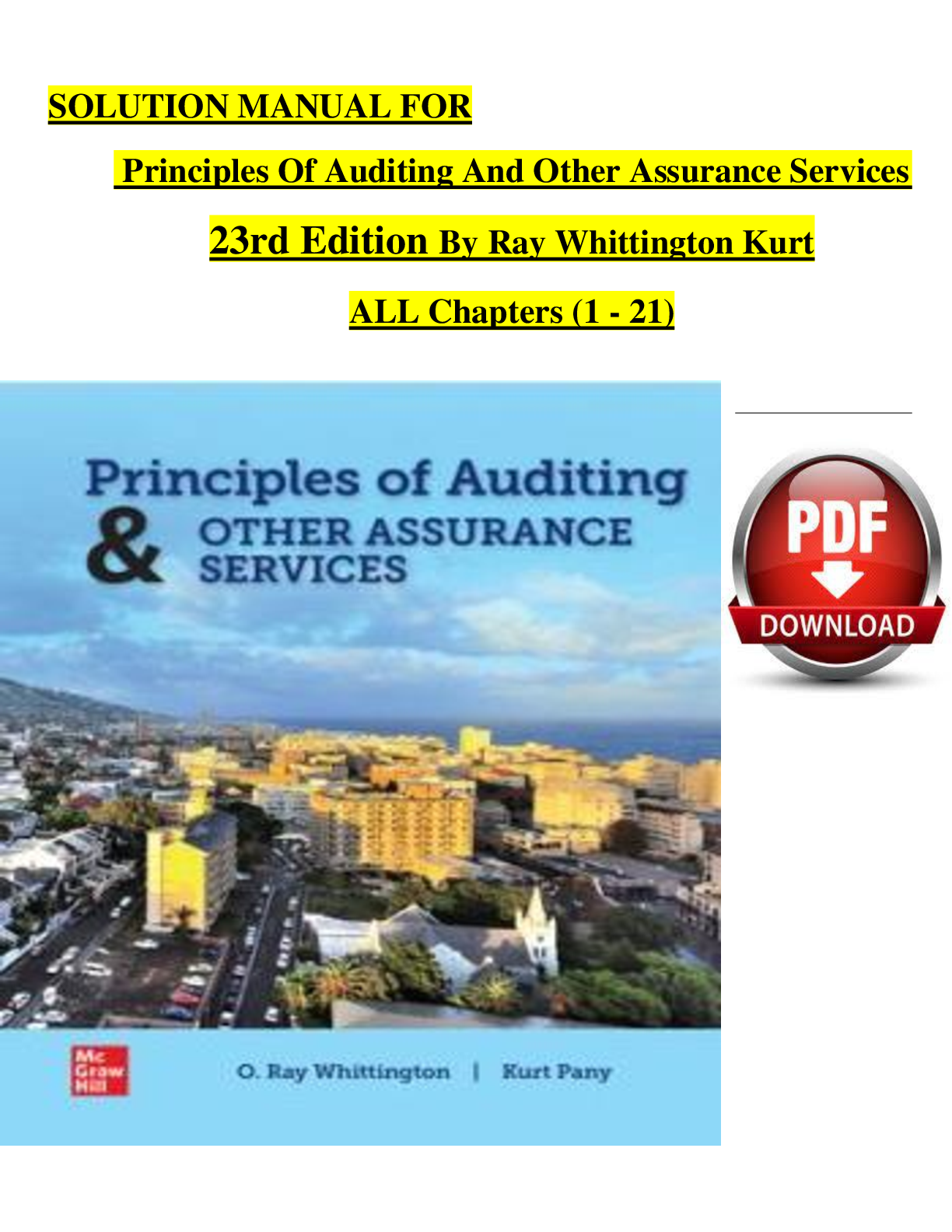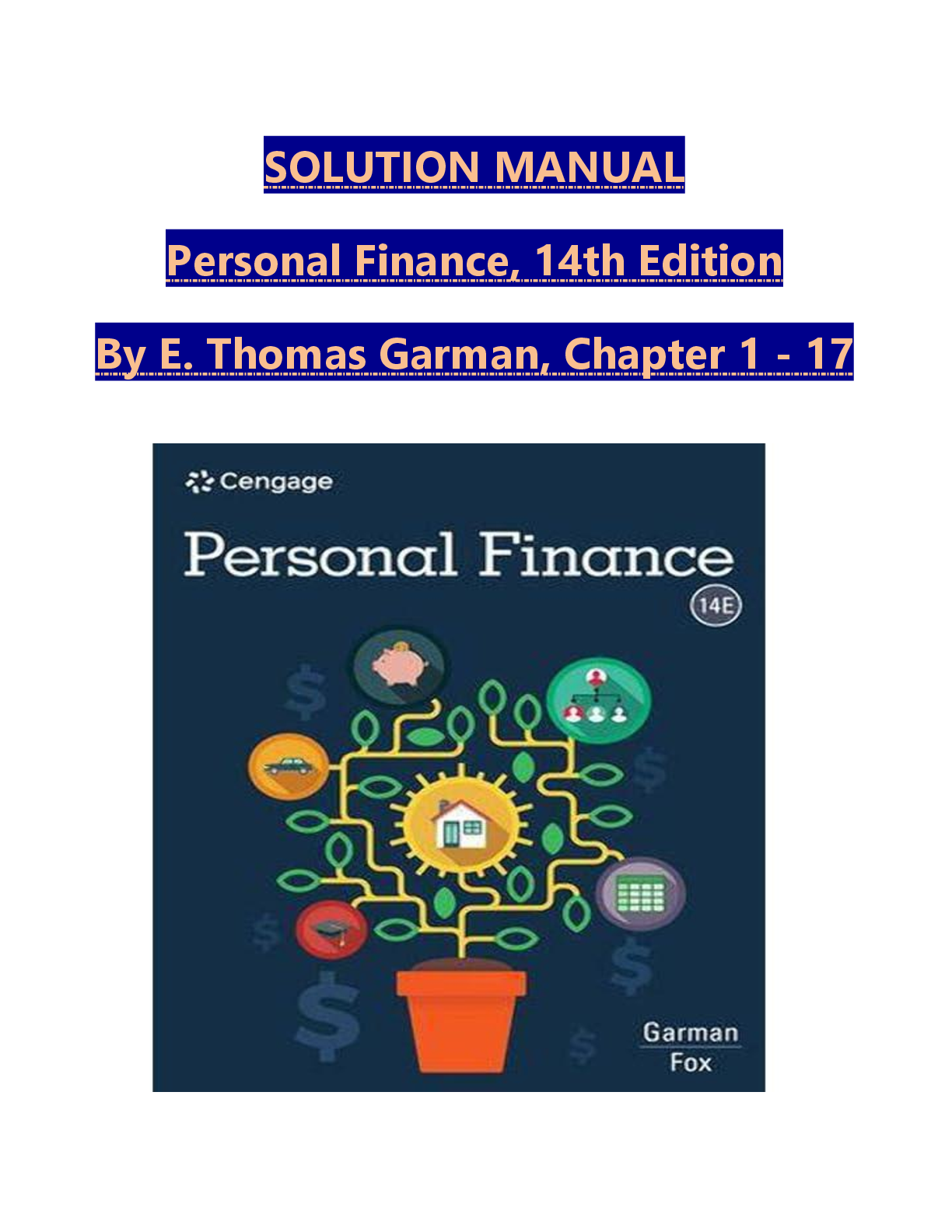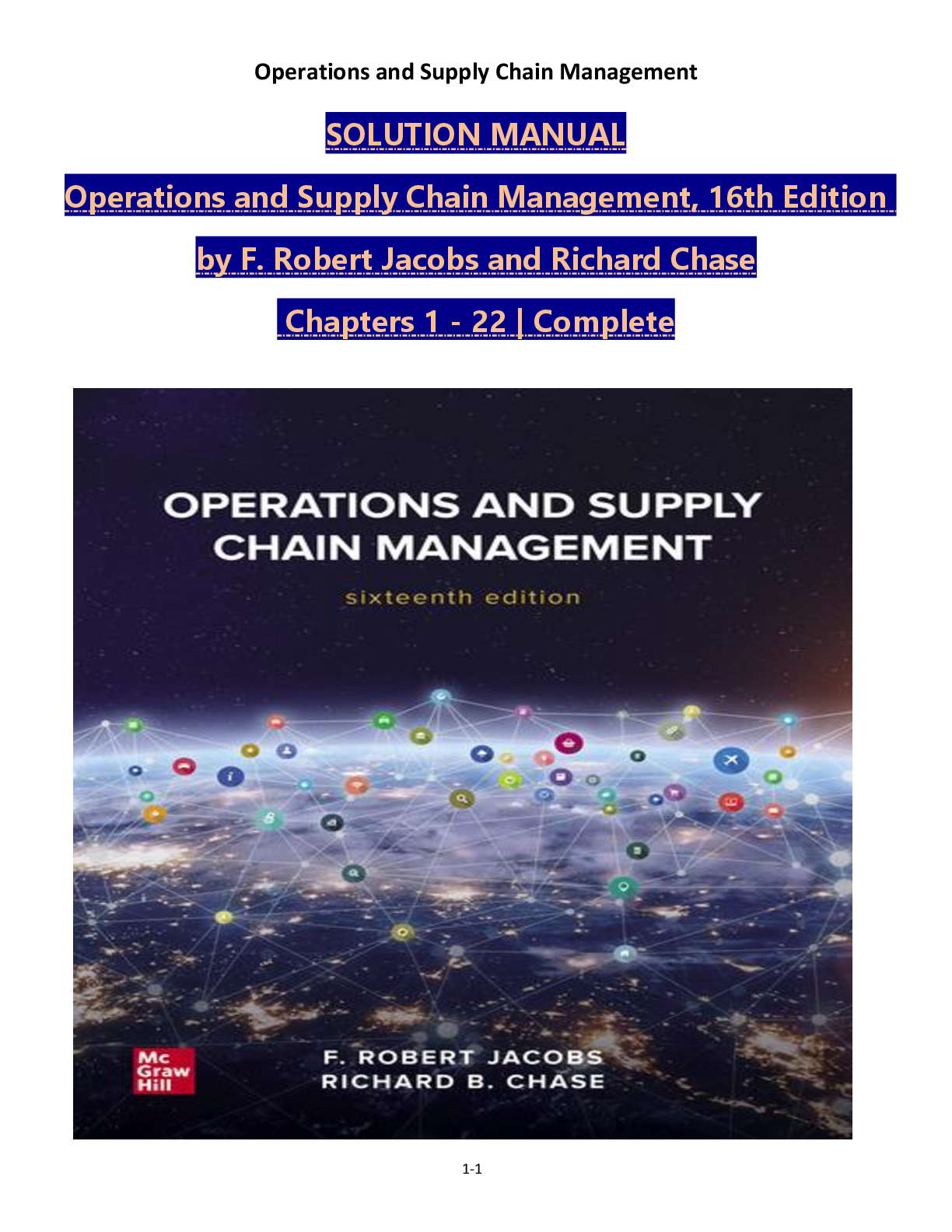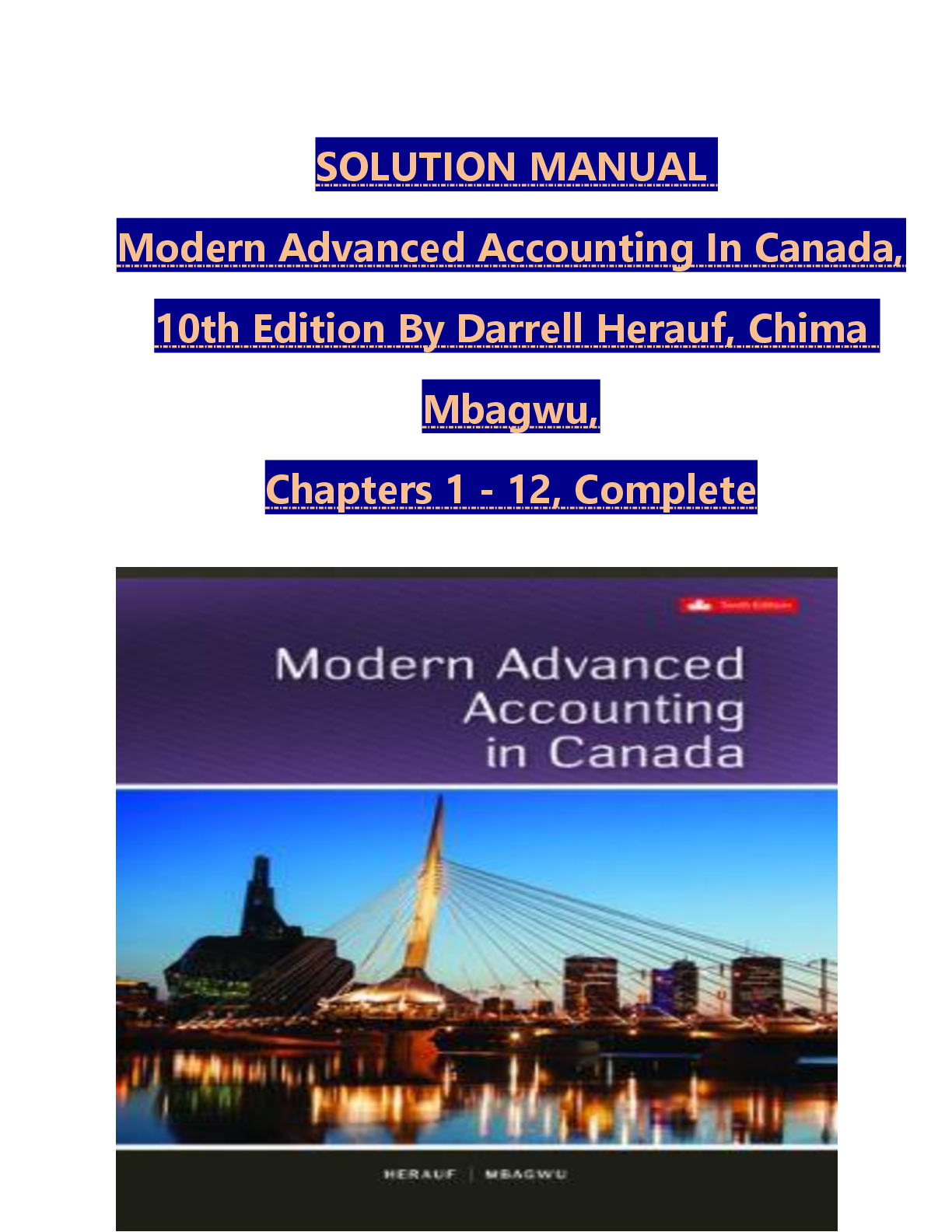Aircraft Structures for Engineering Students Seventh Edition Solutions Manual
Solutions to Chapter 1 Problems
S.1.1
The principal stresses are given directly by Eqs (1.11) and (1.12) in which σx¼80 N/mm2, σy¼0
(or
...
Aircraft Structures for Engineering Students Seventh Edition Solutions Manual
Solutions to Chapter 1 Problems
S.1.1
The principal stresses are given directly by Eqs (1.11) and (1.12) in which σx¼80 N/mm2, σy¼0
(or vice versa), and τxy¼45 N/mm2. Thus, from Eq. (1.11),
σI ¼
80
2
+
1 2
ffiffiffiffiffiffiffiffiffiffiffiffiffiffiffiffiffiffiffiffiffiffiffiffiffi
p802 + 4452
i.e.,
σI ¼ 100:2 N=mm2
From Eq. (1.12),
σII ¼
80
2
�
1 2
ffiffiffiffiffiffiffiffiffiffiffiffiffiffiffiffiffiffiffiffiffiffiffiffiffi
p802 + 4452
i.e.,
σII ¼ �20:2 N=mm2
The directions of the principal stresses are defined by the angle θ in Fig. 1.8(b) in which θ is given by
Eq. (1.10). Hence,
tan2θ ¼
245
80�0
¼ 1:125
which gives
θ ¼ 24°110 and θ ¼ 114°110
It is clear from the derivation of Eqs (1.11) and (1.12) that the first value of θ corresponds to σI while the
second value corresponds to σII.
Finally, the maximum shear stress is obtained from either of Eqs (1.14) or (1.15). Hence from
Eq. (1.15),
τmax ¼
100:2� � ð Þ 20:2
2
¼ 60:2 N=mm2
and will act on planes at 45° to the principal planes.
S.1.2
The principal stresses are given directly by Eqs (1.11) and (1.12) in which σx¼50 N/mm2,
σ
y¼–35 N/mm2, and τxy¼40 N/mm2. Thus, from Eq. (1.11),
3σI ¼
50�35
2
+
1 2
ffiffiffiffiffiffiffiffiffiffiffiffiffiffiffiffiffiffiffiffiffiffiffiffiffiffiffiffiffiffiffiffiffiffiffiffiffiffi
qð Þ 50 + 35 2 + 4402
i.e.,
σI ¼ 65:9 N=mm2
and from Eq. (1.12),
σII ¼
50�35
2
�
1 2
ffiffiffiffiffiffiffiffiffiffiffiffiffiffiffiffiffiffiffiffiffiffiffiffiffiffiffiffiffiffiffiffiffiffiffiffiffiffi
qð Þ 50 + 35 2 + 4402
i.e.,
σII ¼ �50:9 N=mm2
From Fig. 1.8(b) and Eq. (1.10),
tan2θ ¼
240
50 + 35 ¼ 0:941
which gives
θ ¼ 21°380ð Þ σI and θ ¼ 111°380ð Þ σII
The planes on which there is no direct stress may be found by considering the triangular element of unit
thickness shown in Fig. S.1.2 where the plane AC represents the plane on which there is no direct stress.
For equilibrium of the element in a direction perpendicular to AC,
0 ¼ 50ABcosα�35BCsinα + 40ABsinα + 40BCcosα (i)
Dividing through Eq. (i) by AB,
0 ¼ 50cosα�35tanαsinα + 40sinα + 40tanαcosα
which, dividing through by cos α, simplifies to
0 ¼ 50�35tan2α + 80tanα
FIG. S.1.2
4 Solutions Manualfrom which
tanα ¼ 2:797 or �0:511
Hence,
α ¼ 70°210 or �27°50
S.1.3
The construction of Mohr’s circle for each stress combination follows the procedure described in
Section 1.8 and is shown in Figs S.1.3(a)–(d).
FIG. S.1.3(a)
FIG. S.1.3(b)
FIG. S.1.3(c)
Solutions to Chapter 1 Problems 5S.1.4
The principal stresses at the point are determined, as indicated in the question, by transforming each
state of stress into a σ
x, σy, τxy stress system. Clearly, in the first case, σx¼0, σy¼10 N/mm2, τxy¼0
(Fig. S.1.4(a)). The two remaining cases are transformed by considering the equilibrium of the triangular element ABC in Figs S.1.4(b), (c), (e), and (f). Thus, using the method described in Section 1.6
and the principle of superposition (see Section 5.9), the second stress system of Figs S.1.4(b) and (c)
becomes the σ
x, σy, τxy system shown in Fig. S.1.4(d) while the third stress system of Figs S.1.4(e) and
(f) transforms into the σx, σy, τxy system of Fig. S.1.4(g).
Finally, the states of stress shown in Figs S.1.4(a), (d), and (g) are superimposed to give the state of
stress shown in Fig. S.1.4(h) from which it can be seen that σI¼σII ¼15 N/mm2 and that the x and
y planes are principal planes.
FIG. S.1.3(d)
FIG. S.1.4(a)
[Show More]



